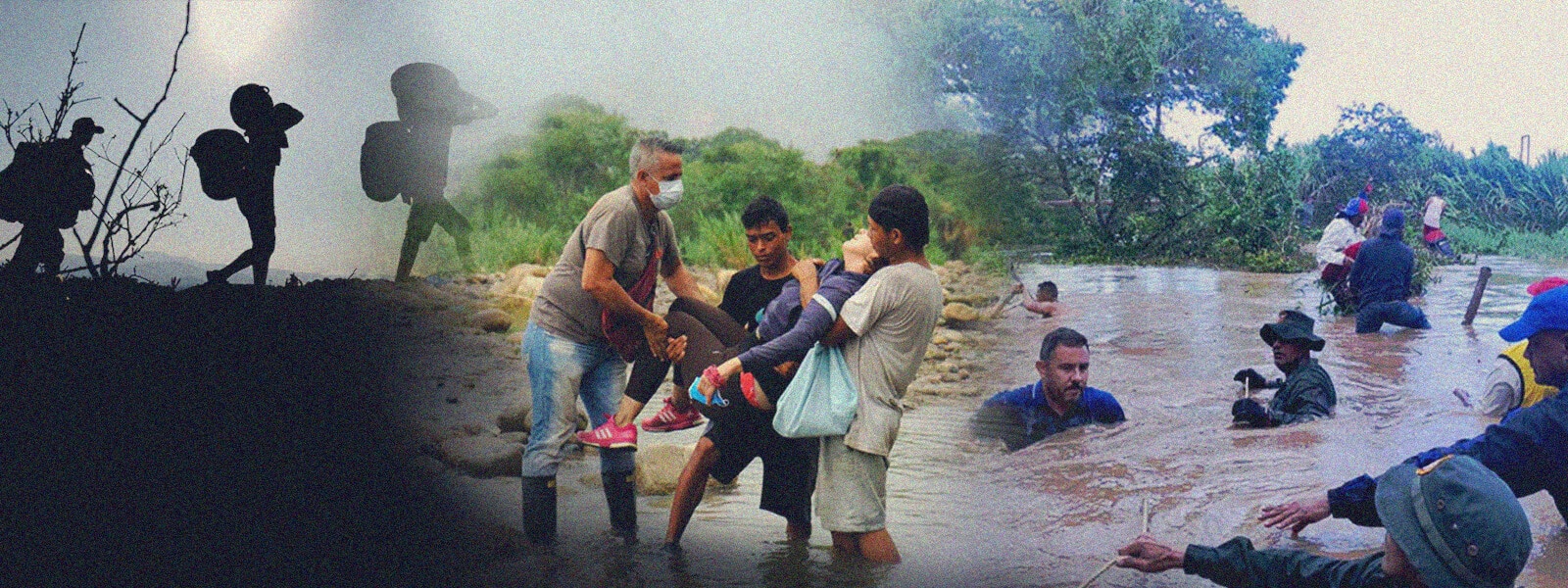The Colombian guerrillas have won a battle against the Venezuelan military in the state of Apure, but they will never win the war. Nevertheless, the fighting made one thing clear: The Venezuelan state can no longer control the criminal forces it has so long tolerated.
The battle between the 10th Front dissidents of the demobilized Revolutionary Armed Forces of Colombia (Fuerzas Armadas Revolucionarias de Colombia – FARC) and the Venezuelan military, exposed an important reality. Once-unified political movements, both within the Venezuelan State and the guerrillas, have degenerated into factional rivalries and competition over criminal economies. The result: increased instability and violence.
Whether the fighting in the border region and the human rights abuses that resulted represent a small taste of Colombia’s civil conflict inside Venezuela or a sign of what is to come remains to be seen. Either way, the conflict will likely have a lasting impact on political and criminal dynamics in Venezuela.
SEE ALSO: FARC Dissidents and the ELN Turn Venezuela Into Criminal Enclave
For President Nicolás Maduro, the decision to launch a full-scale military intervention in Apure now looks like hubris. It exposed the limitations of the military and security forces at his command, and this will not have passed unnoticed by rivals, at home and abroad, political and criminal. And perhaps the most damaging aspect for Maduro is it will have strained his legitimacy with the military itself. Troops were sent to fight and die in what appears to have been a campaign to benefit the president and his allies rather than in defense of the country. Maduro is reliant on the military to stay in power, and if its soldiers and generals are unwilling to fight his battles for him, he could find himself increasingly vulnerable.
However, Maduro and his political faction made some gains. Using the excuse of purging the military ranks of 10th Front collaborators and those responsible for the failures in Apure, several senior military officials have been arrested or removed from their position. In their stead, Maduro has placed loyal allies in these roles and tightened his control over the armed forces, mirroring his attempts to appoint loyalists in key political positions to shore up his grip on power.
The conflict has also deepened the rifts between factions of the ex-FARC Mafia. The events in Venezuela will likely hasten a process already apparent in Colombia, where the remains of the demobilized insurgency are coalescing around two rival and contrasting poles of power. Both claim the right to call themselves the FARC, but both are looking more and more like drug trafficking organizations than insurgent armies.
On one side is the dissident network led by Miguel Botache Santillana, alias “Gentil Duarte,” which has military might, extensive territorial control and some revolutionary credibility on the ground, as it rejected the peace process early. On the other is the Second Marquetalia, which has famed commanders with top-level connections in both politics and drug trafficking, but little military strength. Its leaders carry the stigma of the failures of the peace process they negotiated with the Colombian government. The panorama is further complicated by the presence of numerous small, independent ex-FARC networks.
In Venezuela, the 10th Front, allied to Duarte, claimed an important victory, showcasing their military expertise and their community support in the border region, and sending a clear message that any future attempts to dislodge them will come at a high price. However, the state persecution of the 10th Front looks set to continue and the group, accustomed to operating in Venezuela with near-total impunity, now finds itself in hostile terrain.
For the Second Marquetalia, the victory of the 10th Front represents a setback. Its rival in Apure has shown its strength, while former comrades-in-arms around Colombia have publicly blamed the Second Marquetalia for the conflict, denouncing its leaders as traitors to the revolution. This was then compounded by the reported killing of one of the group’s top leaders, Seuxis Pausias Hernández Solarte, alias “Jesús Santrich,” in the Venezuelan state of Zulia in May 2021. The loss of Santrich was not only a blow to the group’s leadership structure, it also suggests the Second Marquetalia commanders are no longer completely safe in Venezuela.
SEE ALSO: Gentil Duarte’s Master Plan to Reunite Colombia’s FARC Dissidents
However, the fact that the Venezuelan military attacked the Second Marquetalia’s main rival in Apure while leaving its interests and personnel untouched is a powerful indicator of the group’s strong position in Venezuela. In addition, in the middle of the conflict, the former FARC commander and one of the guerrillas’ most notorious drug traffickers, Géner García Molina, alias “John 40,” appeared in Second Marquetalia videos and signed his name to their statements. Until that point, John 40 had been considered part of the core leadership group of Duarte’s dissidents. His public backing of the Second Marquetalia represents a major boost to the group, especially for its drug trafficking networks.
The guerrilla group that has arguably benefited the most from the conflict is the one that did the least: the National Liberation Army (Ejército de Liberación Nacional – ELN). While there were some reports the ELN had encouraged the Venezuelan military to intervene against the 10th Front, all sources consulted in Apure made clear these guerrillas were content to sit on the sidelines during the fighting. As such, they have seen their rivals weakened without risking anything themselves.
When President Hugo Chávez first invited Colombia’s insurgents into Venezuela, he made a Faustian bargain. He gained a powerful ally for his “Bolivarian Revolution,” which he was able to leverage for political, strategic and economic gain. But he also invited in a potent armed force with no guarantees he would be able to control it. While the Chávez era is now fading into memory, Venezuela will continue to pay the price of the pact he made.


